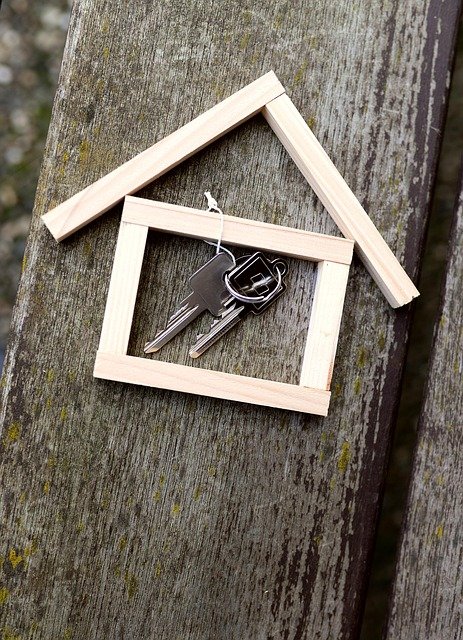Prefabricated Homes in the UK: A Practical and Affordable Solution
In the UK, prefabricated homes stand out for their rapid construction times, energy efficiency, and flexible, modular designs. These modern properties not only provide an affordable alternative to traditional builds, but they also address environmental concerns through the use of sustainable materials. Read this article to discover why more and more Britons are choosing this innovative housing solution.

What Are the Benefits of Prefabricated Homes?
The benefits of prefabricated homes extend far beyond simple cost savings. Construction time is dramatically reduced, with most prefab homes completed within 12-16 weeks compared to 6-9 months for traditional builds. This efficiency stems from simultaneous site preparation and factory construction, eliminating weather delays and reducing labour costs.
Quality control represents another significant advantage. Factory-controlled environments ensure consistent standards, precise measurements, and superior insulation properties. Many prefab homes achieve higher energy efficiency ratings than conventional builds, resulting in lower utility bills and reduced environmental impact. The controlled manufacturing process also minimises waste, making prefabricated homes an environmentally responsible choice.
Modern prefab homes challenge outdated perceptions of temporary or substandard housing. Today’s designs incorporate contemporary architecture, sustainable materials, and smart home technology, creating properties that rival or exceed traditional construction quality.
Who Are the Best Prefabricated Home Builders in the UK?
The best prefabricated home builders in the UK combine innovative design, quality craftsmanship, and reliable customer service. Leading manufacturers have established strong reputations through years of successful projects and satisfied customers.
Established companies typically offer comprehensive services including design consultation, planning permission assistance, and full project management. Many specialise in specific market segments, from affordable starter homes to luxury eco-friendly developments. The most reputable builders maintain accreditation with industry bodies and provide extensive warranties on their constructions.
When selecting a prefab home builder, consider their portfolio, customer testimonials, and after-sales support. The best companies provide transparent pricing, detailed timelines, and regular project updates throughout the construction process.
What Customisation Options Are Available for Prefabricated Homes?
Customisation options for prefabricated homes have expanded significantly, allowing buyers to create truly personalised living spaces. Modern prefab manufacturers offer extensive design flexibility, from layout modifications to exterior finishes and interior specifications.
Structural customisation includes room configurations, ceiling heights, and extension possibilities. Many builders provide modular systems that allow easy future expansion or reconfiguration as family needs change. Window placement, door styles, and architectural features can typically be adjusted during the design phase.
Interior customisation encompasses flooring materials, kitchen designs, bathroom fixtures, and built-in storage solutions. Energy efficiency options include solar panels, heat pumps, and advanced insulation systems. Smart home integration, from automated lighting to security systems, is increasingly standard in premium prefab offerings.
External customisation covers cladding materials, roofing options, and landscaping integration. Many manufacturers offer design software allowing customers to visualise their choices before finalisation.
How Much Do Prefabricated Homes Cost in the UK?
Prefabricated home costs vary significantly based on size, specification, and location. Understanding pricing structures helps buyers make informed decisions and budget appropriately for their projects.
Basic prefab homes start from approximately £50,000-£80,000 for single-bedroom units, while family-sized three-bedroom homes typically range from £120,000-£200,000. Premium eco-friendly models with advanced features can exceed £300,000. These prices generally cover the manufactured home but may exclude site preparation, foundations, and utility connections.
Additional costs include planning permission fees (£500-£2,000), site surveys (£500-£1,500), and connection to utilities (£2,000-£10,000 depending on location). Transportation and assembly typically add 10-15% to the base home cost.
| Home Type | Size | Base Cost Range | Total Project Cost |
|---|---|---|---|
| Studio/1-Bed | 400-600 sq ft | £50,000-£80,000 | £70,000-£110,000 |
| 2-Bedroom | 700-900 sq ft | £80,000-£140,000 | £110,000-£180,000 |
| 3-Bedroom | 1,000-1,300 sq ft | £120,000-£200,000 | £160,000-£260,000 |
| Luxury/Eco | 1,200-2,000 sq ft | £200,000-£350,000 | £260,000-£450,000 |
Prices, rates, or cost estimates mentioned in this article are based on the latest available information but may change over time. Independent research is advised before making financial decisions.
Are Prefab Homes Suitable for UK Planning Regulations?
UK planning regulations treat prefabricated homes similarly to traditional construction, requiring the same permissions and compliance standards. Most prefab manufacturers understand local planning requirements and can assist with application processes.
Building regulations compliance is typically easier with prefab homes since factory construction ensures consistent standards. Many prefab companies provide certified designs that meet UK building codes, streamlining approval processes. Energy efficiency requirements are often exceeded due to superior insulation and modern construction techniques.
Location restrictions apply equally to prefab and traditional homes, with considerations for conservation areas, green belt land, and local design guidelines. Some councils actively encourage prefab developments as solutions to housing shortages.
Prefabricated homes in the UK represent a mature, viable alternative to traditional construction methods. They offer compelling advantages in speed, quality, and environmental impact while providing extensive customisation opportunities. As the housing market continues evolving, prefabricated homes are positioned to play an increasingly important role in meeting the UK’s housing needs efficiently and affordably.




